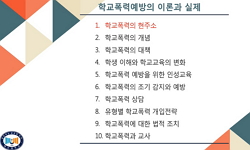Accounts from therapeutic culture seem often to associate the selfish, or at least self-centered quest for self-fulfillment with individual choice or satisfaction, self-expression, expressive individualism, and emotionalism. These associations point t...
http://chineseinput.net/에서 pinyin(병음)방식으로 중국어를 변환할 수 있습니다.
변환된 중국어를 복사하여 사용하시면 됩니다.
- 中文 을 입력하시려면 zhongwen을 입력하시고 space를누르시면됩니다.
- 北京 을 입력하시려면 beijing을 입력하시고 space를 누르시면 됩니다.
https://www.riss.kr/link?id=A100000142
- 저자
- 발행기관
- 학술지명
- 권호사항
-
발행연도
2014
-
작성언어
-
- 주제어
-
KDC
800
-
등재정보
KCI등재후보
-
자료형태
학술저널
- 발행기관 URL
-
수록면
73-94(22쪽)
-
KCI 피인용횟수
0
- DOI식별코드
- 제공처
-
0
상세조회 -
0
다운로드
부가정보
다국어 초록 (Multilingual Abstract)
Accounts from therapeutic culture seem often to associate the selfish, or at least self-centered quest for self-fulfillment with individual choice or satisfaction, self-expression, expressive individualism, and emotionalism. These associations point to the downside of therapy as they present it as constituting a culture of narcissism, selfishness, or irresponsibility. While some of these characterizations contain useful insights, they overlook what are maybe some of the most important features of a therapeutic outlook. This paper aims to reveal that the therapeutic imperative is not so much geared towards the realization of self-fulfillment, as it is the promotion of self-limitation. Therapeutic culture tends to posit the self in a fragile and feeble form and insist that the management of life requires the continuous intervention of therapeutic expertise. Because of this, the elevated concern with the self is underpinned by anxiety, pain, suffering, and survival, rather than seen as a positive vision of realizing the human potential. Therapeutic culture has in this way helped to construct a diminished sense of self by which one is seen as suffering from an emotional deficit and vulnerability. This paper demonstrates this downside of therapeutic culture concerning self-limitation and the sense of a diminished self by examining popular misery memoirs. Misery memoirs are widely consumed by the general public, therefore tend to be treated by contemporary therapeutic culture as a gospel on the therapeutic ideal for self-fulfillment and self-discovery. This is, despite the existence of hidden evidence to the contrary, because of their redemptive, happy endings that show individuals overcoming difficult trials such as child abuse, incestuous rape, and domestic violence. Individual self-fulfillment and self-discovery in such stories are not achieved through the active agency of the subject but through the passive endurance of pathological symptoms and with the aid of expertise and outside support. Therefore, such stories put victims in the limited position.
참고문헌 (Reference)
1 펠처, 데이브, "이름을 잃어버린 아이" 생각의 나무 2004
2 필리포빅, 즐라타, "빼앗긴 내일" 한겨레아이들 2008
3 Filipovic, Zlata, "Zlata's Diary: A Child's Life in Sarajevo" Viking 1994
4 Tal, Kali, "World of Hurt: Reading the Literatures of Trauma" Cambridge UP 1996
5 Furedi, Frank, "Therapy Culture: Cultivating Vulnerability in a Uncertain Age" Routledge 2004
6 Wisechild, Louise, "The Obsidian Mirror: An Adult Healing from Incest" Seal 1988
7 Rosenfeld, Alvin H., "The End of The Holocaust" Indiana UP 2011
8 Cole, Alyson, "The Cult of True Victimhood: From the War on Terror to The War on Welfare" U of California P 2007
9 Roth, Anne, "Popular Trauma Culture: Selling the Pain of Other in the Math Media" Rutgers UP 2011
10 Moskowitz, Eva S., "In Therapy We Trust: America Obsession with Self Fulfillment" The Johns Hopkins UP 2001
1 펠처, 데이브, "이름을 잃어버린 아이" 생각의 나무 2004
2 필리포빅, 즐라타, "빼앗긴 내일" 한겨레아이들 2008
3 Filipovic, Zlata, "Zlata's Diary: A Child's Life in Sarajevo" Viking 1994
4 Tal, Kali, "World of Hurt: Reading the Literatures of Trauma" Cambridge UP 1996
5 Furedi, Frank, "Therapy Culture: Cultivating Vulnerability in a Uncertain Age" Routledge 2004
6 Wisechild, Louise, "The Obsidian Mirror: An Adult Healing from Incest" Seal 1988
7 Rosenfeld, Alvin H., "The End of The Holocaust" Indiana UP 2011
8 Cole, Alyson, "The Cult of True Victimhood: From the War on Terror to The War on Welfare" U of California P 2007
9 Roth, Anne, "Popular Trauma Culture: Selling the Pain of Other in the Math Media" Rutgers UP 2011
10 Moskowitz, Eva S., "In Therapy We Trust: America Obsession with Self Fulfillment" The Johns Hopkins UP 2001
11 Daniel Brodsky, Louis, "Gestapo Crow: Holocaust Poems" Time Being 1992
12 Jordan, Pat, "Dysfunction for Dollars"
13 Tavris, Carol, "Beware the Incest-Survivor Syndrome Machine"
14 Sutrken, Marita, "Acts of Memory: Cultural Recall in the Present" U of New England P 1999
동일학술지(권/호) 다른 논문
-
Multiculturalism, Ghetto and Racial Conflicts in Pop Culture
- 한국영미문화학회
- ( Hyun Joo Ki )
- 2014
- KCI등재후보
-
『순진한 테러리스트』에 재현된 스쾃하우스-레싱의 장소정치학
- 한국영미문화학회
- 박선화 ( Sun Hwa Park )
- 2014
- KCI등재후보
-
NOTES ON ANTIQUITY IN WESTERN LATE MODERNITY THROUGH NOVEL AND FILM
- 한국영미문화학회
- ( Roberto Bertoni )
- 2014
- KCI등재후보
-
『잠긴 방』의 아이러니: 자신의 정체성을 탐구하는 전기 작가
- 한국영미문화학회
- 손동철 ( Dong Chul Son )
- 2014
- KCI등재후보
분석정보
인용정보 인용지수 설명보기
학술지 이력
| 연월일 | 이력구분 | 이력상세 | 등재구분 |
|---|---|---|---|
| 2019 | 평가예정 | 신규평가 신청대상 (신규평가) | |
| 2018-12-01 | 평가 | 등재후보 탈락 (계속평가) | |
| 2017-01-01 | 평가 | 등재후보학술지 유지 (계속평가) |  |
| 2016-01-01 | 평가 | 등재후보학술지 유지 (계속평가) |  |
| 2015-12-01 | 평가 | 등재후보로 하락 (기타) |  |
| 2011-01-01 | 평가 | 등재학술지 유지 (등재유지) |  |
| 2008-01-01 | 평가 | 등재학술지 선정 (등재후보2차) |  |
| 2007-01-01 | 평가 | 등재후보 1차 PASS (등재후보1차) |  |
| 2005-01-01 | 평가 | 등재후보학술지 선정 (신규평가) |  |
학술지 인용정보
| 기준연도 | WOS-KCI 통합IF(2년) | KCIF(2년) | KCIF(3년) |
|---|---|---|---|
| 2016 | 0.11 | 0.11 | 0.12 |
| KCIF(4년) | KCIF(5년) | 중심성지수(3년) | 즉시성지수 |
| 0.13 | 0.11 | 0.475 | 0 |





 KCI
KCI KISS
KISS





